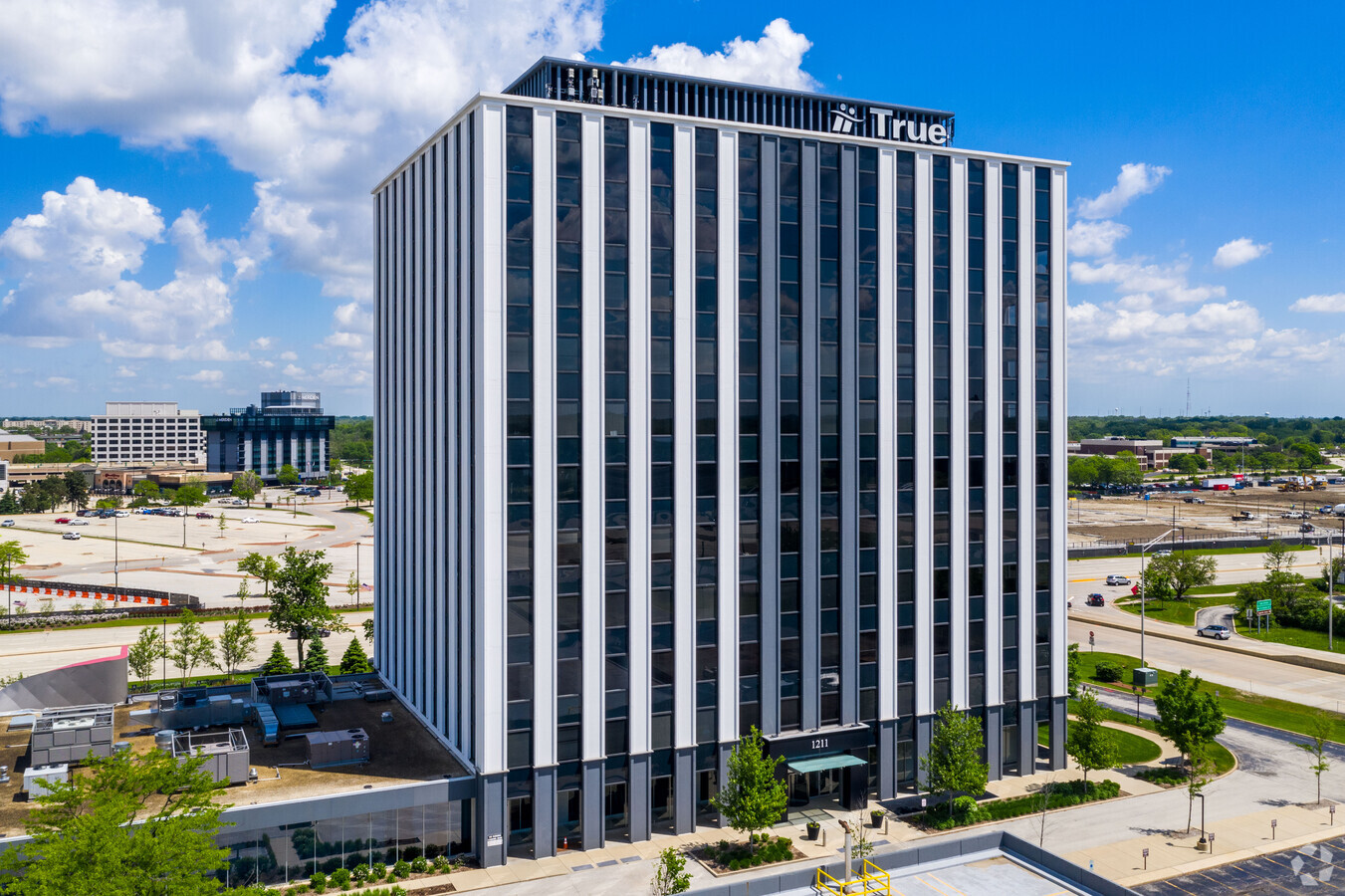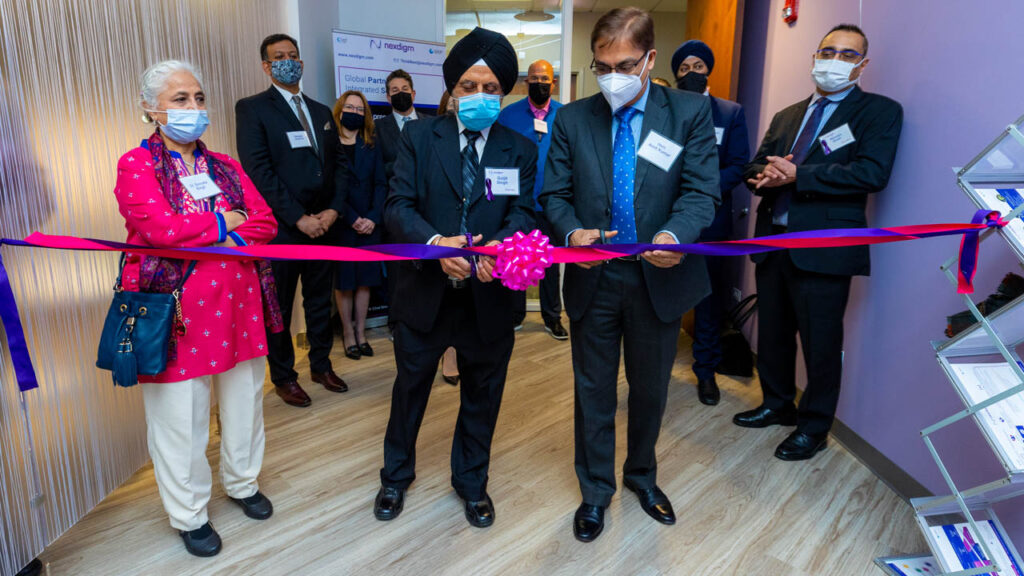Planning a new business expansion in Chicago or the greater Chicago region? Looking to relocate to the DuPage County area? Choose DuPage can provide expert guidance, key resources and valuable business connections to help you navigate the challenges of business development.
Located just west of Chicago, DuPage County is a global hub for a diverse range of industries and sub-sectors, from data centers and logistics to advanced manufacturing, healthcare, food processing and more.
Now, small businesses, start-ups and large corporations alike are choosing DuPage to relocate or expand their business, and Choose DuPage is helping them make it happen
Why DuPage?
DuPage offers businesses a variety of benefits, from a strong talent pipeline to a collaborative business climate, a strategic location, and more.
At a time when businesses around the world are struggling to navigate their supply chain and get ahold of the materials they need, DuPage is strategically located at the center of a global cargo gateway.
Here, millions of tons of cargo move through three nearby international airports (O’Hare, Midway, and the DuPage Airport). DuPage is also located near the nation’s largest inland port, the busiest railroad hub in the U.S., and a highway system that connects businesses in Chicagoland with cities across the Midwest market and beyond. DuPage’s location makes it easier for businesses to access goods, customers, and vendors along the supply chain.
Meanwhile, as businesses compete for talent, DuPage offers one of the nation’s leading talent markets. Our strong workforce ecosystem and seamless talent pipeline are built on national-caliber educational institutions and a diverse economy, as well as organizations and programs that help connect employers to workers.
With more than 640,000 workers in DuPage with a diverse range of skills and educational attainment levels – plus the nearby Chicago talent pool – businesses in the region have access to the workforce they need.
In addition to a strategic location and a strong workforce ecosystem, DuPage offers tax incentives for expansion, as well as low commercial property taxes, close proximity to millions of consumers across Chicagoland, and opportunities to connect with other businesses in a collaborative environment.
The challenge of expansion and relocation
Although it’s often the result of a business’ growth, the process of expanding or relocating to a new area is often one of a business’ greatest challenges.
Whether it’s a start-up that’s expanding its customer base or a well-known corporation opening a new customer service center, most businesses must eventually expand or relocate.
To do so, they may have to purchase new assets, open new units, hire and train additional staff, develop new marketing strategies, move their business to a new location, or add additional square footage to a current location. Expansion or relocation requires a major material investment and a number of difficult decisions, and success ultimately comes down to good planning, solid data and insights, and some help from those who know the market best.
Many businesses struggle to expand or relocate not because they lack the will to do so, but because they don’t have the right knowledge, resources and local connections. Expansion often requires training new employees, finding a location to expand their operations, and connecting with vendors and other businesses in the area along the supply chain—and that requires deep knowledge of the local market.
Before a business expands or relocates, they should strive to understand the market in which they are doing business. They should research local market conditions to understand where their sector is heading, whether the area has the workforce to support their business, and how the regional economy is expected to perform in the future.
Unfortunately, most start-ups and small businesses don’t have the time or resources to thoroughly research the area in which they are expanding. Even for larger businesses, finding reliable, relevant data and building connections within the local supply chain is often difficult.
How Choose DuPage can help
Choose DuPage is an alliance of DuPage County’s public and private sector leaders, representing a wide range of industries and interests within DuPage. Together, we are committed to helping our region and our business community thrive.
As local insiders and experts in the DuPage and greater Chicagoland region, we have the resources, connections and expertise to connect you with incentive programs, help you find the right location for your business, and use reliable, relevant data to understand the region’s economy and business climate.
Industry-Sector Reports: Plan smarter with valuable insights and key data points on your market.
Understanding the present and projected future conditions of a local market is critical to successfully expanding within or relocating to a region.
How is the market expected to perform over the coming years? What is the current state of the workforce for your subsector? How can you connect with vendors, suppliers and other businesses along your supply chain?
Choose DuPage can provide a detailed industry-sector report with critical information about factors like workforce, supply chain, and the overall business climate in DuPage for your industry.
Site Selection Assistance: Work with a local expert to find the right space for your business.
When relocating to a new area, selecting the right location can ultimately determine a business’ success or failure. However, if you are unfamiliar with the area, choosing the right site can be difficult.
It helps to have an expert with a local perspective. At Choose DuPage, we have a deep understanding of the area’s commercial real estate market, and we can help you find a space that suits your needs.
Commercial Collaboration: Learn from peers and connect with businesses along the supply chain.
We offer a variety of opportunities for commercial collaboration, including classes, seminars and networking events. These meetings and events help connect you with other businesses in your industry and along the supply chain, as well as organizations along the talent pipeline that can help you recruit and develop your workforce.
Specialized Resources and Incentives: Access programs designed to help you achieve your goals.
From not-for-profit organizations providing training and consulting services to angel investment programs for start-up business expansion in Chicago and the Chicago area, DuPage businesses can access a wide range of resources and incentives to help achieve their goals. Learn more about these programs on Choose DuPage’s resources page.
Get in touch with Choose DuPage.
For more information on expanding or relocating your business in DuPage County, contact us at info@ChooseDuPage.com.







